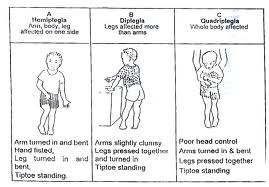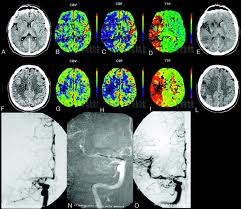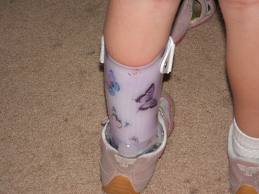The word ‘plegia‘ means weakness so severe that it is nearly complete. ‘Hemi‘ implies one side of the body. Hence, ‘hemiplegia‘ means complete paralysis of one half of the body, including one arm and leg. Any disease or injury in the motor centers of the brain can cause hemiplegia.
Hemiplegia is a more severe form of ‘hemiparesis‘ wherein one half of the body is only weakened. It is also very different from the conditions of paraplegia & quadriplegia, which are commonly confused with hemiplegia.Paraplegia is paralysis in both legs, below the waist. Quadriplegia is paralysis below the neck and is also usually the result of a spinal cord injury.

Causes of Hemiplegia
Stroke: is the commonest cause of hemiplegia. Insufficient blood supply to the brain leads to loss of brain functions. The stroke may be caused by:
- A clot formed within the blood vessel blocking the blood supply’-> a thrombus
- A thrombus breaks away from its site of origin and forms a block elsewhere in the circulation. -> an emboli
- A bleed from a blood vessel supplying the brain -> a hemorrhage
- Head injury
- Diabetes
- Brain tumor
- Infections -> meningitis, encephalitis
- Migraine syndrome -> recurrent headaches of severe intensity occasionally accompanied by sensations of numbness and tingling in one half of the body.
- Inflammation of the blood vessels -> vasculitis
- Diseases affecting the nerves -> like Multiple Sclerosis; acute necrotizing myelitis.
- Conditions presenting from birth -> cerebral palsy. Lack of blood supply damages nerve cells in the brain. Birth trauma, difficult labor, perinatal strokes in infants within 3 days of birth can all cause cerebral palsy.
- Hereditary diseases -> leukodystrophies. This is a rare disorder affecting the myelin sheath which covers and protects nerve cells in the brain. The condition usually appears in infancy or childhood.
Symptoms of hemiplegia
Injury or insults to the brain cells that control movements in one half of the body cause hemiplegia. Hence, symptoms largely depend upon the part of the brain affected. The same can be said about the severity of individual symptoms.
- Difficulty in walking.
- Problems in balance, losses balance when trying to walk
- Difficulty in swallowing
- Trouble with vision. Blurred vision or weakness of the eyes.
- Speech becomes difficult.
- Numbness, tingling or loss of sensations on one half of the body.
- Loss of control over bladder and bowel movements leading to an inability to hold on to stool or urine.
- Unable to perform tasks like holding objects, tying laces, dressing oneself, buttoning etc.
- Feeling depressed
- Heightened emotional sensitivity with inability to handle stressful situations.
- Memory seems poor. Unable to recall recent or past events concerning people, places and activities.
Homeopathic treatment for Hemiplegia
Homoeopathy provides supportive treatment and prevents any further deterioration.
Non progressive hemiplegia in particular, responds well to homoeopathic treatment.
Homoeopathic can prevent the paralytic muscles from further degeneration. The medicines act at the level of the nervous system and facilitate proper conduction of signal impulses from the nerves to the muscles. Moreover, homeopathy acts without any side effects and is an excellent adjunct to the available physiotherapy measures.





